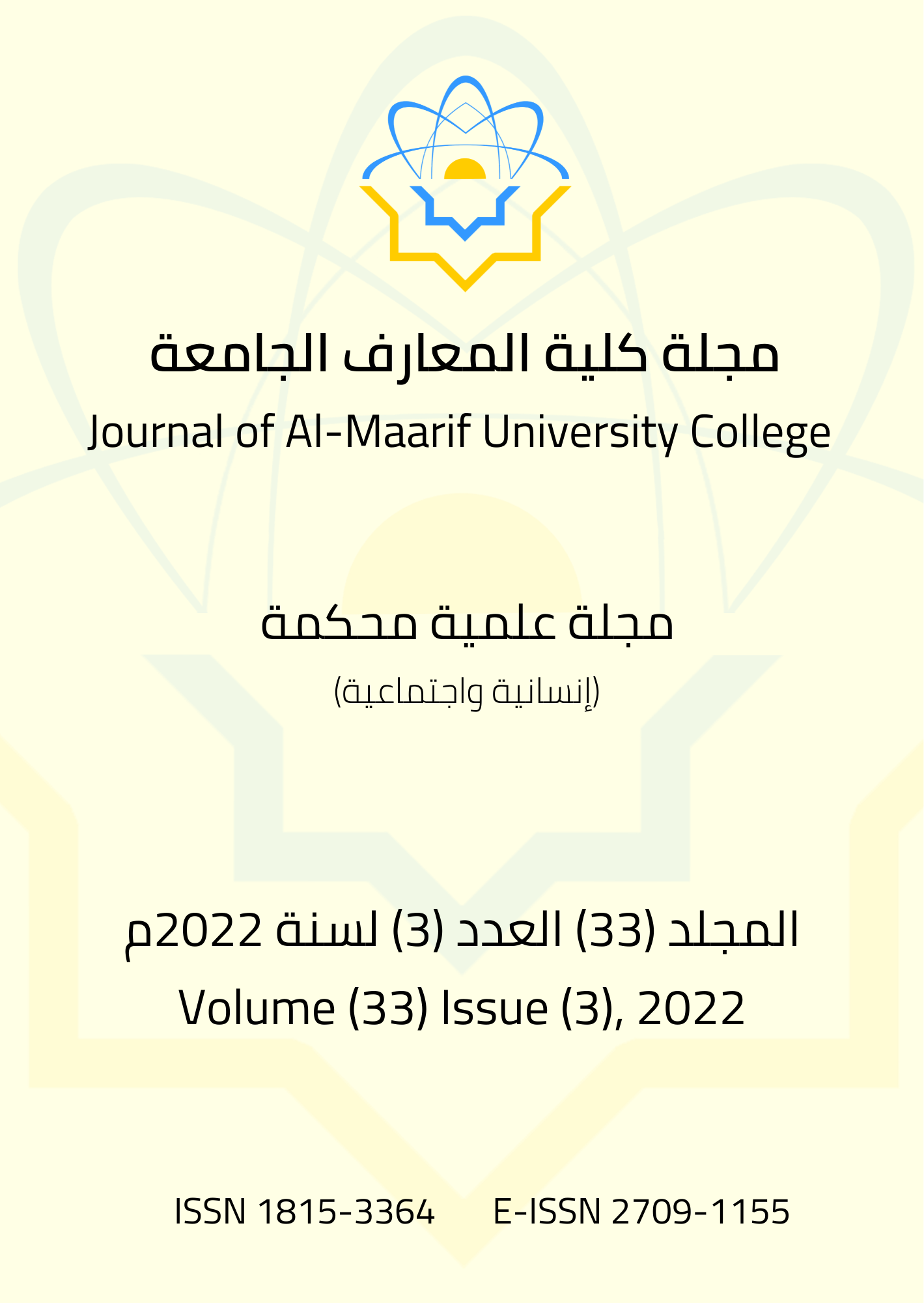The Argumentative Factors in The Stories of Women in The Holy Qur’an
Main Article Content
Abstract
The theory of Argumentation is one of the most important theories of pragmatics that concerns the linguistic means and the potential of the natural languages on which the speaker is available, and is interested in studying the rhetorical effectiveness made by the persuader, in order to influence the other(s) with the proposed thesis, its field is wide and complex, and is related to different ideological sciences. Further, its strategies are diverse, and among them one is called the argumentative factors, which are related to the internal structure of the text, it is not within the same saying, the opposite of the links between arguments and results, in order to direct the addressee towards a deliberate result where the function of factors in increasing the power of argumentative speech. The Qur’an women's stories are rich in the employment of persuasive language due to its multiplicity of topics and the diversity of its receivers: therefore, Quran employs a lot of argumentative strategies in order to influence the addressees and get them to be convinced and comply with what it says, and to reflect it in their different positions and behaviors. One of these strategies is the argumentative factors. The nature of the research necessitated the adoption of a method based on the description, analysis, and statistics in the treatment of verses of the Holy Quran, as it dealt with the study of the argumentative factors. The result of the study shows that (إن) /ina/ as an argumentative factor is the most frequently used factor, eight times, in Quran woman’s stories, to show assurance and affirmation.
Article Details

This work is licensed under a Creative Commons Attribution-NonCommercial-ShareAlike 4.0 International License.

